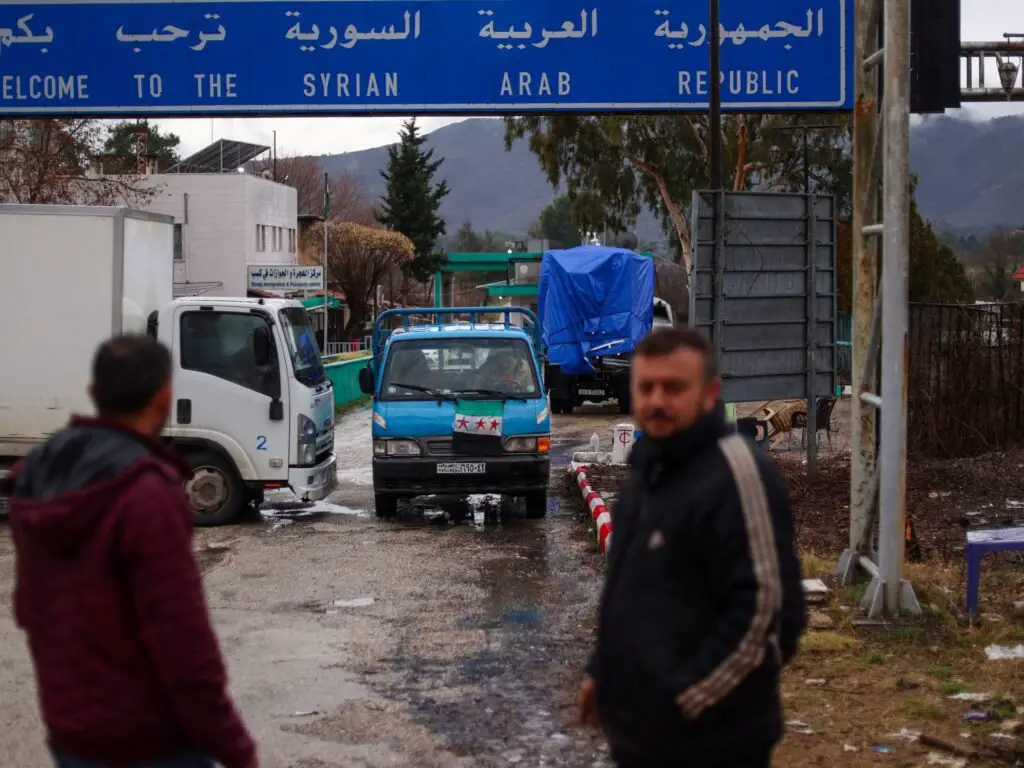According to the interior minister of neighboring Turkiye, where some are housed, almost 31,000 Syrians have returned to their homeland since the fall of ruler Bashar al-Assad 3 million Syrian refugees.
Meanwhile, across the country on Friday, Syrians gathered for a day of remembrance honoring the victims of the Assad regime and the 13-year civil war.
Millions fled Syria after the 2011 war, but since the fall of al-Assad on December 8, there is hope that many will return.
“The number of people who have returned (from Turkey) is 30,663,” Turkish Interior Minister Ali Yerlikaya told local news channel TGRT on Friday, saying “30 percent” of them were born in Turkey.
On Tuesday, Yerlikaya told state-run Anadolu news agency that more than 25,000 Syrians had returned, adding that they would be allowed to leave and re-enter Turkey three times in the first half of 2025.
Ankara will also open “a migration management office” in Aleppo, Syria’s second-largest city, where most refugees living in Turkey come from, he said, without giving further details. And it will reopen its consulate general in Aleppo “in a few days,” he added, echoing President Recep Tayyip Erdogan’s comments earlier this week.
Turkiye’s embassy in Damascus reopened on December 14, six days after Assad was overthrown by the Hayat Tahrir al-Sham (HTS) rebels.

“I want the truth”
Meanwhile, Syrians in the capital Damascus and elsewhere held a day of remembrance for those killed and imprisoned during al-Assad’s nearly 25-year rule.
Dozens of sombre demonstrators gathered in Hejaz Square in central Damascus to inform the new authorities about the fate of relatives who went missing under al-Assad and held up pictures of the disappeared, AFP news agency reported.
“It’s time for tyrants to be held accountable,” read a black banner unfurled from the balcony of the elegant Ottoman-era train station. Other posters read: “It is a right to reveal the fate of the missing” and “I don’t want an anonymous grave for my son, I want the truth.”
Al Jazeera’s Hashem Ahelbarra reported from Damascus and said people also gathered in other areas, including Umayyad Square.
“I saw many people with banners, posters and pictures of their relatives who were killed or disappeared in prisons during the time of Bashar al-Assad or his father Hafez al-Assad,” he said.
At one point Ahelbarra described the scenes in the streets as “chaotic” as people were seen celebrating firing their weapons into the air.
Syria’s prisons were one most important pillar in supporting the Assad regime. Images smuggled out of Syria in 2013 showed “irrefutable evidence of widespread torture, starvation, beatings and disease in Syrian government detention facilities,” which amounted to a crime against humanity, the human rights group said, according to Human Rights Watch.
‘Interference’
Elsewhere on Friday, Iran’s top diplomat warned against “destructive interference” in Syria’s future and said decisions should rest solely with the country’s people.
Iran “views decision-making on Syria’s future as the sole responsibility of the people … without destructive interference or foreign coercion,” Abbas Araghchi wrote in Chinese state media’s People’s Daily during a visit to Beijing.
He also stressed Iran’s respect for Syria’s “unity, national sovereignty and territorial integrity.”
Iranian state media reported that Abbas Araghchi landed in the Chinese capital on Friday afternoon to begin his first official visit to the country since being appointed foreign minister. China and Iran were both supporters of former President al-Assad.
In the humanitarian sector, a United Nations health official said about 50 tons of European Union-funded medical supplies are expected to reach Syria by the end of the year.
The supplies, sent from an EU warehouse in Dubai, landed in Istanbul on Thursday and were due to be taken to the border in the coming days, Mrinalini Santhanam from the World Health Organization’s office in Gaziantep, southern Turkey, told AFP, announcing that they will be driven south and likely cross the border into Syria “on December 31st.”
The delivery includes 8,000 emergency surgical kits, anesthetics, intravenous fluids, sterilization materials and medicines to prevent disease outbreaks. The EU said they were being sent to support “health systems in Idlib and northern Aleppo.”
The civil war that broke out in 2011 “destroyed the country and the health system”. Almost half of the hospitals in Syria are not functioning,” he said.





